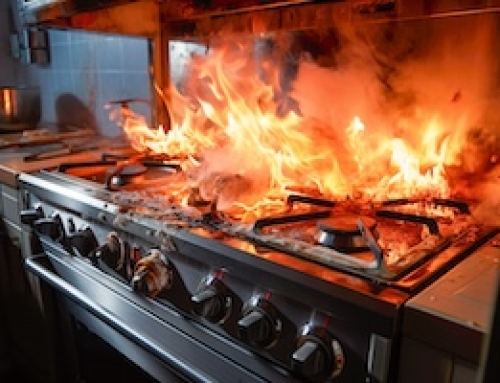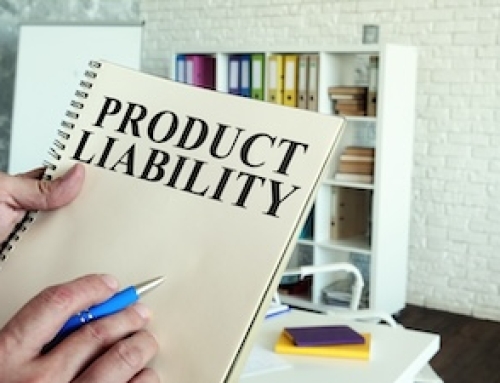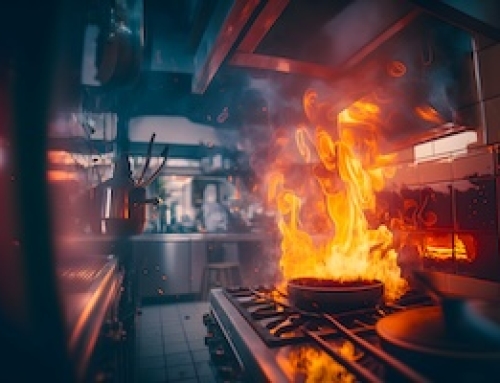 Insuring your restaurant with the right type of business insurance is imperative, but there are some important factors to understand in the event of a loss. If you suffer a covered loss, you will be faced with the claim payout following the peril and you should know the key differences between replacement cost or actual cash value for your restaurant. Before unforeseen accidents happen, you need to understand the differences, advantages, and disadvantages between replacement cost and actual cash value. If your restaurant suffers a covered loss, will ACV vs. replacement cost be the right choice for your specific needs and circumstances?
Insuring your restaurant with the right type of business insurance is imperative, but there are some important factors to understand in the event of a loss. If you suffer a covered loss, you will be faced with the claim payout following the peril and you should know the key differences between replacement cost or actual cash value for your restaurant. Before unforeseen accidents happen, you need to understand the differences, advantages, and disadvantages between replacement cost and actual cash value. If your restaurant suffers a covered loss, will ACV vs. replacement cost be the right choice for your specific needs and circumstances?
Actual Cash Value (ACV) and Ways to Calculate
ACV is determined by the current market value of the restaurant building, less depreciation. The age and condition of your property will play a critical role when establishing depreciation. Obviously the older the property, the higher the depreciation. Depreciation is reflective of wear and tear, age, and types of building materials of the property. To assess the ACV of your commercial building, you must assess the current market value by having an appraisal done. Once that is established you would then deduct the amount of depreciation calculated.
Replacement Cost and Contributing Factors
Replacement cost is calculated as the amount of money necessary to repair or replace your damaged property with like, kind, and quality building materials and construction, without consideration for depreciation. For example, if your business property suffers damage due to a covered peril, a replacement cost policy will cover the costs to rebuild the restaurant to its original state, regardless of the current market value or age of the building. Some factors for consideration when using the term “replacement cost.”
- Secure regular/routine appraisals– Doing this will keep an ongoing accurate replacement cost value of your property
- Assess up-to-date knowledge of material and labor costs through contractors
- Review current building code requirements as that can impact replacement cost
Is ACV or Replacement Cost Right for Your Alabama Restaurant?
Choosing between ACV vs. replacement cost depends on various dynamics subject to your specific needs and property. Below are three key considerations, but not limited to:
Budget- Ask yourself how much you can afford to pay out of pocket if you suffer a loss. If you want to save money on the forefront, you may wish to go with an ACV policy to save money on premiums, but keep in mind the settlement amount will reflect depreciation which could lead to financial strain.
Replacement policies are more costly but if you can afford to pay higher premiums, you may be more comfortable knowing you will have full replacement cost which provides peace of mind… priceless!
Age and Condition- If your property is older, ACV may be a more economical choice even though it won’t fully address replacement costs. For newer properties and/or those that are in above average condition, replacement cost may make more sense since it includes full comprehensive coverage without deductions for depreciation.
Risk- This depends on how much of a risk taker you are. Assess that risk and consider the possibilities of loss exposure. Replacement cost offers the financial security but at a higher premium, while ACV is more budget friendly, but with a risk of not covering the full replacement costs, which could lead to financial strain.
Final Considerations for ACV Vs. Replacement Cost…Review Your Policy Options Today for Restaurant Financial Security
Each option has its benefits and drawbacks, and we can help guide you in choosing the options most suitable for your specific restaurant and needs. Contact us at Burkett & Associates today to review, discuss, and assess your property’s valuation and Alabama commercial insurance needs so that you will have the right protection for you and your restaurant business. Don’t wait! Call us today at 256-704-7400.






